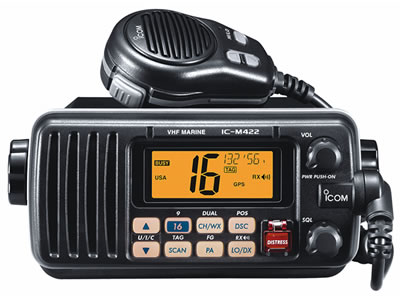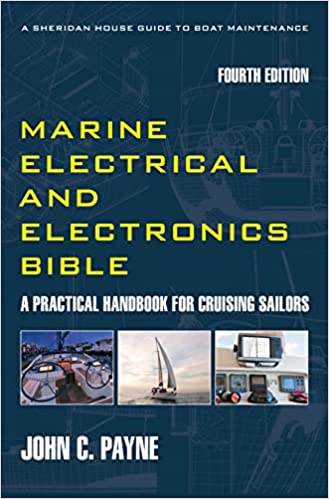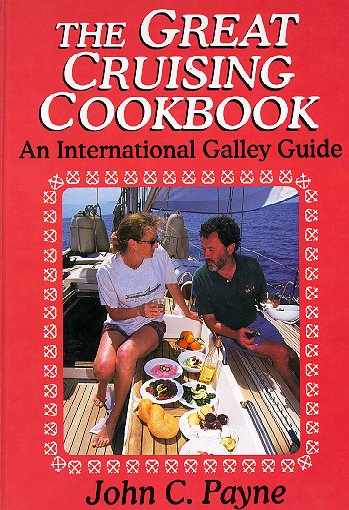Best marine radio for boat
The best marine radio for boat is the DSC VHF marine radio. Using cell phones instead of VHF radios during maritime emergencies has tragically led to fatalities due to delayed rescue responses and poor signal coverage. One harrowing example occurred on December 23, 2010, when Greg Arlotta and a crewmate aboard the Sea Wolf found themselves in freezing waters in Delaware Bay. Arlotta called 911 from his cell phone, telling the operator, “When this [cell] phone gets wet, I’m dead.” His prediction proved true — he drowned before rescuers could reach him. The U.S. Coast Guard was delayed because the distress call went to a land-based emergency center unfamiliar with maritime rescue protocols.
Best marine radio for boat
Another case cited by marine safety experts involved anglers relying solely on cell phones during offshore emergencies. In one incident, poor reception and lack of GPS data hindered rescue efforts, resulting in a fatality that could have been avoided with a properly functioning DSC VHF radio.
There are also several documented cases of people on sinking yachts and even in liferafts using the cellphone to request help after VHF-radios communications efforts failed. This would seem the ideal opportunity to review and assess yacht communication options in general. This means coming to grips with DSC radio and I have both fixed and a handheld portable DSC VHF if do have to exit to a raft.
GMDSS has been the driving force in recent changes and made a significant impact on the average cruising yacht, while providing improvements in the safety area, also removing many other options that were relied on by yachts. It all comes down to what services you want, where you are sailing etc. For me DSC radio means safety, my main priority. The best marine radio for boat is a DSC VHF one.
Best marine radio for boat
Installing a Digital Selective Calling (DSC) VHF radio on a boat or yacht offers significant safety and communication advantages, making it an essential upgrade for any serious mariner. The best marine radio for boat is the one that can save your life, doesn't matter what make or model.
DSC VHF radios allow boaters to send automated distress signals with GPS coordinates at the push of a button, dramatically improving emergency response times. This feature is especially critical in offshore or remote areas where voice communication may be compromised. Unlike traditional VHF radios, DSC units can also initiate direct calls to specific vessels or coast stations using unique Maritime Mobile Service Identity (MMSI) numbers, reducing radio traffic and ensuring messages reach the intended recipient.
Best marine radio for boat
Another key benefit is integration with onboard navigation systems. When connected to a GPS, DSC radios continuously broadcast your position, which is invaluable during search and rescue operations. They also support group calling and routine communications, streamlining coordination between crew members or flotillas.
For yacht owners focused on compliance, DSC radios meet international safety standards and are often required for vessels operating beyond certain distances from shore. Their reliability, clarity, and automated features make them a cornerstone of modern marine safety systems.
In short, a DSC VHF radio enhances situational awareness, improves emergency preparedness, and ensures more efficient maritime communication.
About Cell Phone Use
The rate of smart phone implementation around the world can be described as nothing short of spectacular and the impact, in particular on VHF-radios coastal services has lead to the demise and rationalisation of many VHF-radios coast stations and many are now DSC radio only.
With that reduction has also been the reduction or cessation of voice VHF-radios weather broadcasts. However the cell-phone does provide some options. Many use them for chart plotting, and also Windy and Predict Wind apps.
The simple reality is that cell phones are not designed for marine environments. They lack broadcast capability, meaning only one party hears the distress call, unlike VHF radios which alert all nearby vessels and rescue stations simultaneously. These incidents underscore the critical importance of carrying and knowing how to use a DSC-equipped VHF radio for reliable, life-saving communication at sea.
About VHF Radio
VHF radio is still essential, and scheduled voice weather broadcasts are still transmitted in many places while the US use the WX weather channels. The DSC radio units under the GMDSS system are essential for offshore cruising. I went to West Marine and bought a Standard Horizon model DSC radio and did a course and got the license. DSC radio is the main game now.
NAVTEX is also an essential component of GMDSS, is now becoming a necessity and effectively replaces broadcasts. They are not overly expensive and for anyone going on extended offshore European and Med, they are a good investment. The original frequency of 518kHz is now supplemented with 490kHz on most new sets. I have a dual band ICS Electronics unit myself, with the display in the cockpit.
The 4th Edition of the Marine Electrical Electronics Bible Get your copy and start becoming self sufficient and save money on expensive technician callouts.WHAT ABOUT HF/SSB and HAM RADIO
Given that virtually all MF/HF coast radio stations have closed with voice calls now not possible, this has thrown the viability of MF/HF into serious question. While commercial shipping has MF/HF radios as part of GMDSS, they are not used for voice call. For yachts the major use of MF/HF now appears to be ship to ship on the various skeds, weatherfax and some still use for e-mail services.
There are several good nets operating now and are very useful. Like many I have a good synthesized MF/HF set, but if you care to listen in it's very quiet out there in comparison to pre-GMDSS days. In the UK the demise of Portishead and many other major shore stations ended an era and those who used it will lament those often entertaining periods while waiting on turn and listening to all types of vessels calling in.
Of course one should state that weatherfax transmissions on HF are under serious threat both in the UK/Europe and in the USA. Cost cutting is the stated reason for shutting down, and also the transfer of services to satellite. I often use the services via my laptop, and closure will have devastating effects on the many yachts who use both discrete weatherfax units or software based systems. Email should continue and there are a variety of options, that require modems and subscription charges, and also it is worth consulting SailMail (www.sailmail.com). This service is targeted just at cruising folk and worth supporting. Ham radio is still very much the province of American cruisers, and whereas before it was very much a secondary system, it's now proving to be extremely beneficial given the loss of other systems. For UK yachts as an option it should be considered for those doing long distance cruising, and the study and license are not as onerous as it used to be. It does offer a good backup system and also a myriad of Nets, covering all cruising areas. Even installing a receiver is beneficial, and a good source of information, but the calling option is really worthwhile.
There are many instances where people have got distress messages through or patched into medical advice. Of course once you have a system it's virtually free. Naturally the USA has fostered some interesting developments and there is a worldwide email service on ham called WinLink which also uses internet for message forwarding. (See details at www.winlink.org)
About Satellite Phones
Inmarsat are they mainstay of commercial shipping communications and GMDSS, whereas these vessels have Inmarsat-C, other variants have been introduced. The principal system is Mini-M for yachts although larger yachts have gone for the C system. It is virtually global in coverage and offers voice, data, email and fax services. The sets aren't cheap but you get reliability and coverage, which is valuable. Inmarsat C offers full GMDSS access and these features plus daily free weather data make it a good option, as sets are cheaper than Mini-M and you use the laptop as the terminal.
Iridium. The US Department of Defense has now purchased the system, with operating maintenance by Boeing.
Globalstar. Unlike Iridium they do not give global cover, however they use spotbeam technology to cover high traffic areas. This is also linked into the cellular networks to utilise the coverage that it provides. Currently Globalstar cover the North Atlantic, Caribbean, but typically Globalstar is for around 200nm offshore, which suits most cruising people. In addition they offer data and internet access capabilities for USA and the Caribbean.
Starlink. This is the gamechanger and like many I have my system installed and it is now hard to live without. Starlink has revolutionized internet connectivity for yachts, offering high-speed, low-latency broadband even in remote offshore locations. Unlike traditional satellite systems, Starlink’s constellation of low Earth orbit (LEO) satellites provides consistent coverage with minimal signal dropouts. This enables seamless video conferencing, real-time weather updates, navigation data, and streaming services while at sea. For yacht owners and crew, it enhances safety, operational efficiency, and onboard comfort. Installation is relatively straightforward, and the flat-panel antenna is compact and robust. With flexible maritime plans and expanding global coverage, Starlink is becoming a game-changer for modern yachting and long-range cruising.
DSC Radio
Of course, if you are cruising away to escape all of this, then there is still something to be said for sitting in the shade, cold drink in hand, and encapsulating life in some short sentences on a postcard. The experience of buying the card, and then the cultural interactions at the post office trying to post it make snail mail a pleasant experience. Somehow the cell-phone in constant contact just doesn’t feel the same, however handy and convenient it is. Ring! Ring! "Hello, where am I? well sailing off St Lucia or some other exotic location actually etc, etc" doesn’t have the same gravity as the letter home capturing the voyage and all its tribulations, even one feels rather smug telling them. For most of us it will be a matter of striking the right balance between budget and the need and frequency of staying in touch with those at home. For safety the best marine radio for boat is a DSC VHF marine radio.
Click on this link to go back and find out more and all you need to know about the best marine radio for boat and DSC radio and more about boat radios and all about fishing and boats.


